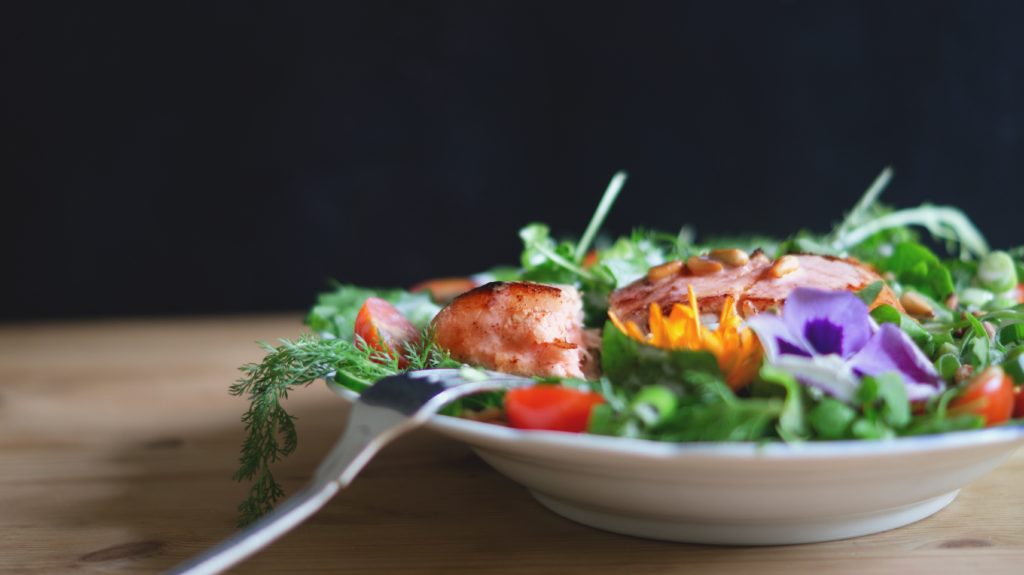All fields are required
Posted in E. coli,Food Safety,Our Blog,Outbreaks & Recalls on February 11, 2019

It is difficult to bring great news to you due to things having the ability to turn in moments but for now: the Romaine E. Coli scare is over. This is good news not only to us as consumers, but to the farmers growing Romaine lettuce. I believe sometimes we forget what they have to go through in order to meet CDC regulations in cases like these.
Just because we are in the clear does not mean we get to rest in our efforts to keep food safe on any front. Now is the time to review. I want to talk about E. coli, the Romaine scare, and where we go from here. I am happy for this information; I miss my Romaine wraps I make at home.
Ecoli Refresher
We remember that E. coli is a bacteria found everywhere. It even resides inside our bodies. There is a normal amount of E. coli acceptable in our everyday lives: it helps our digestive tract break down food we eat.
When we speak of an E. coli outbreak, it refers to a toxin called Shiga toxin. This germ, when ingested can cause our bodies all sorts of problems if left unchecked. Most of us have had food poisoning and I’m confident 100% of those would say they never want it again. E. coli is a type of food poisoning with a few different outcomes if severe.
One of the most asked questions from my friends and family is: “How do I prevent E. Coli?” My response, while lengthy, is quite simple. Here is a list of easy but super important ways we can avoid this nasty germ.
As stated, these are simple steps to ensure you do all you can to avoid bacteria. Of course there is no way to stay away from dangers all the time. If that was the case we would be out of a job. But you can (and should) take easy steps to keep you and your families safer when you eat.
Symptoms, like most food poisoning present themselves within 2 to 8 days and can get worse as time goes by. The main things to look for but are not limited to are:
If these symptoms persist and are not treated they can lead to more dangerous outcomes:
It is important to never try to deal with symptoms such as these. Always seek medical help as quickly as possible. As an aside, be sure to mention to your doctor that antibiotics are not recommended for E. coli. Send them to this site for more information as to why.
Romaine Outbreak Information
Final statistics from the CDC list 62 reported cases of illnesses from the last quarter of 2018 alone. Sixteen states were affected with 25 hospitalizations due to E. coli. Thankfully there were no recorded deaths resulting from the sickness. Last but not least: recalls galore.
Outside the United States, Canada Public Health facilities recorded illnesses associated with “the same DNA fingerprint” as the bacteria from California.
Epidemiological, laboratory, and traceback evidence from the United States and Canada indicated that Romaine lettuce harvested from the Central Coastal growing regions of northern and central California was like the source of the outbreak (CDC).
Special Risks
I’m sure I am sensitive to this subject right now due to my soon-arriving daughter. She is due to make her appearance to the world the first week of March. There are certain people who have a higher susceptibility rate contracting E. coli than others.
The elderly and infants are more likely to contract E. coli because of their lower immune systems. The same goes for those with already weakened immune systems for numerous reasons.
During the summer months we are at higher risk as well because germs like to grow in the summer more than winter. This means your picnic is a battleground before you take the first bite. The CDC and FDA have a lot to say concerning do’s and don’ts when it comes to eating outside. Take the time now when the weather is not that great for most of us to read and understand the dangers surrounding picnics.
Last but not least are women expecting. I am on a constant lookout when it comes to either preparing food or eating out with my wife. She is thankful for the “added security” as she calls it but I know she thinks at times I am too worried about what we eat. I am here to tell you now: you can never be too worried about what you eat. When we stop thinking, planning, and worrying about what we consume; that is when bad things happen. Stay vigilant.
Where Do We Go?
As I age, I find myself becoming more cynical in life. I used to be a glass-half-full kind of guy but now it depends on my mood. When I heard that the Romaine lettuce scare was over I was excited at the prospect of eating it again. But I am also afraid this is due to the winter months and that it will start up again come summer. Please don’t think me fatalistic, just a realist.
Here is the good part though. We all have a wonderful opportunity to take this time to get as informed as we possibly can and spread this information to others. At MakeFoodSafe.com we strive to keep ourselves, our families, and you dear readers as informed as we can. Your task, if you choose to accept, is to take this information out to those who may not have heard of us. By spreading knowledge we can stop the spread of E. coli.
By: Dwight Spencer, Contributing Writer (Non-Lawyer)